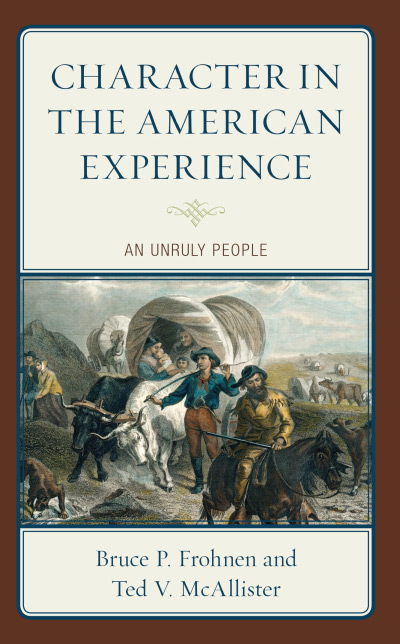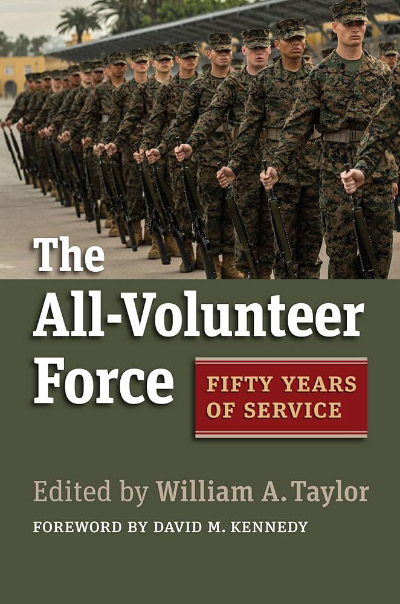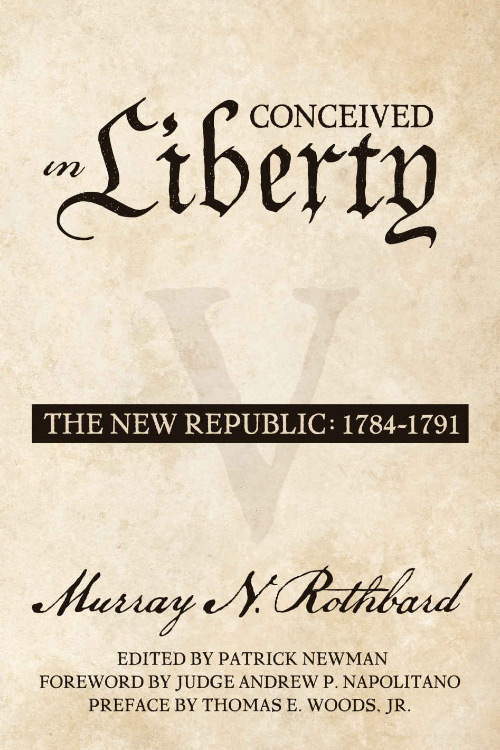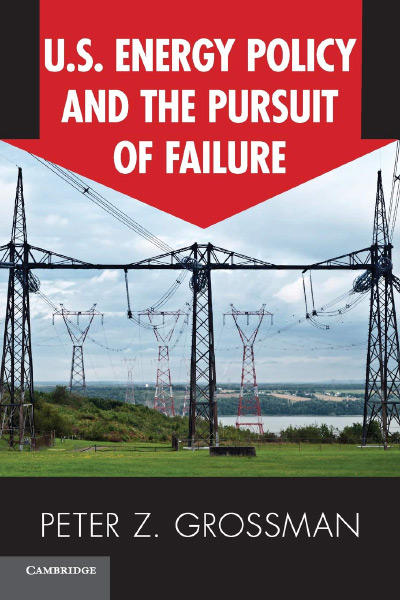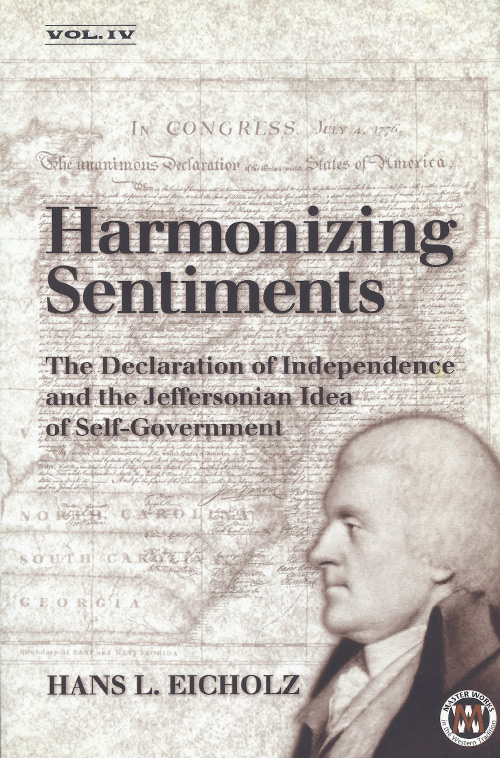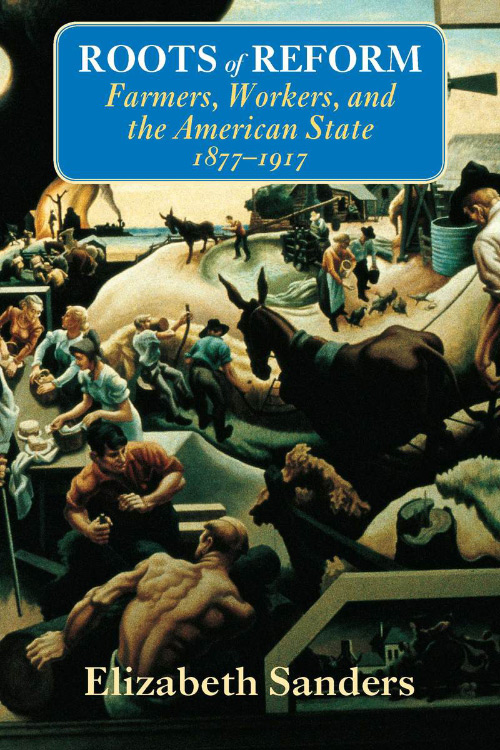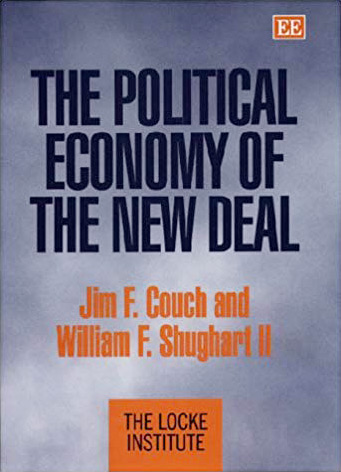In many ways, Character in the American Experience is a lament—a lament that Americans are no longer “unruly” in a good way but have become compliant. This became especially obvious when COVID swept the nation. As Bruce Frohnen and Ted McAllister see it, the “humiliating, cowardly fiasco of the great lockdowns and mask mandates of 2020–2021 is the reductio ad absurdum of the new, ‘expert’ mindset. On the basis of ‘science’ born of guesswork plugged into computer models and aided by postapocalyptic literature and movies, supposedly free people abandoned their elders to deadly, genuinely virus-infected nursing homes while cowering in their basements, waiting for contactless deliveries and direct deposits of their government checks. ... Americans had been working up to this failure of nerve for decades” (p. 176).
The book’s task is to explain the original character of the American peoples and plot out how it morphed into its current form. The authors warn that in recent decades histories of early America have tended to either condemn our predecessors as “hateful despots who built the oppressive institutions from which only contemporary academics and activists can free us” or vindicate them as “good progressives-in-the-making who did their best to set up modern, individualist institutions and succeeded in laying the groundwork for political and cultural modernization. Neither group seeks to understand Americans as they were, let alone as they understood themselves” (p. 4). Frohnen and McAllister, instead see early Americans as “rooted neither in hunger for power nor selfish individualism,” but “rooted in a coherent vision of the common good and the virtues necessary for a decent society of self-governing people” (p. 4). They “worked hard, took hardship as part of life, and believed that work rather than play was the core of real identity” (p. 5). Most importantly, they were rooted in local communities that insisted on “public virtues such as honesty, hard work, fair dealing, and a combination of independent-mindedness and concern for the common good” (p. 9). The importance of this kind of community can be clearly seen in the covenants New Englanders created in settling new townships, but it was evident elsewhere as well. This communitarian habit did not depend on any abstract theory of the state of nature or claims about individual rights, rather it was “a habit born from the need to bring about order” in settling a new land (p. 25). Since then, Americans have become “more individualistic and more statist at the same time.” In our time, “the healthy and morally mature person is endangered by the twin forces of statism and radical individualism” (p. 9).
Frohnen and McAllister draw liberally on ideas about regional variations in the genesis of the American character from David Hackett Fisher’s Albion’s Seed (Oxford University Press, 1996) and later from Alexis de Tocqueville on the American character in the early 1800s. However, most chapters in Character in the American Experience do not have sufficient citations, which weakens its authority in making its arguments. Despite this shortcoming, those who have studied American history will appreciate many of the authors’ conclusions and insights. They observe that early Americans were intolerant, but that a “pluralism of intolerance turned out to be one of the keys to American freedom, broadly understood” (p. 31). They argue that our ancestors (by blood and/or influence) “were unruly, but in a uniquely orderly way. Mobs could be a real danger. ... Duels continued to play an important role. ... There were blood feuds among clans and race riots. But there also was a commitment to law—and to deep and shared cultural norms that lay beneath law—that could transcend even deep, dangerous differences” (p. 52). They suggest that the Constitution was “crafted for an unruly people, recognizing every person’s sinful nature” (p. 59). They argue that religious movements of early 1800s brought a new belief that declared every person’s power to become “self-made”: “The task of self-cultivation, long emphasized among aristocrats ... was now something possible and, indeed, emphasized, as a moral obligation of all people,” so that it became “the conviction that each person, no matter where he falls on the social scale, has the ability and obligation to devote himself to self-improvement” became a “centerpiece of American character” (p. 72). They conclude that community was so central that “withdrawal from social life meant withdrawal from one’s full self, to the impoverishment of both one’s soul and one’s community” (p. 82). They aver that “Americans have never apologized for our basic materialism. We have, in fact, seen it as a safe, reasonable response to the inevitable dangers of life to tend to our own business” (p. 105).
However, this unruly but community-focused and orderly people began to change in important ways. The New Deal was critically important, especially Social Security, which “nationalized and turned into legal requirements what had been family and local duties to care for the sick, the aged, and the inform. People had fallen through the cracks of this informal system, just as today they fall through the cracks of a much more extensive, intrusive bureaucratic system. Our point is merely that these programs took away one more reason for the family, the local association, and the local public square to exist” (pp. 140–41). The centrality of the New Deal in changing the national character is widely accepted, so I wish the authors had said more on this crucial issue and done more to document it. By this point Gallup polls were up and running and the final stretch of the book could have used them to document and quantify the trends in character and beliefs that Frohnen and McAllister outline.
By the middle of the twentieth century, these changes were becoming permanent: “The men and women who came home from the battlefields and the factories had endured much thanks to their strong spirit. But they also had been disciplined. They had not just suffered but also gotten used to working in gargantuan hierarchical organizations. Unlike the generations before them, many of these Americans had become accustomed to answering to higher authorities, subordinating their own judgement to that of others, not just for some specific good or limited time, but as a matter of habit” (p. 144). Here the authors decry the effects of both big government and big business in warping the American character. In the next couple decades, a revolution of rights overturned many traditional ways. While much good came of this, ultimately Frohnen and McAllister judge this change a failure: “One might expect all these new rights to make people freer, and especially less constrained by the power of the federal government. That’s not what happened” (p. 151). By the end of the century, the American character was in the grip of a home-grown power in its schools and universities, who substituted “bureaucratic structures (run by ‘enlightened’ administrators) for natural associations, traditions, religion, and stoic virtues to teach Americans to despise their traditional character and way of life” (p. 161). They summarize the key changes that have unfolded over the past century this way: “The character of [today’s] Americans is different from that of their forebears. It values ‘inclusion,’ not independence, ‘self-expression’ not honor, gratification not discipline, end results not the unending process of self-government and community flourishing” (p. 174).
Some of these changes, of course, have been good things and are not diametrically opposed to the earlier outlooks they are paired with in Frohnen and McAllister’s dichotomies. Earlier Americans weren’t inclusive enough—although many of today’s putative efforts at inclusion seem to be as much about exclusion as inclusion. Self-expression can be a good thing if it is constrained by virtue. We can hope to be gratified (satisfied) after leading lives of self-discipline. End results matter, as long as the ends are just and we focus on our true, eternal ends not just the here and now.
For all the insightful good sense in Character in the American Experience, it comes up short in places. First, the thread of the argument is occasionally lost as the authors turn more to passing historical events and forget about the American character. Second, as I noted in my review of their earlier book, Coming Home: Reclaiming America’s Conservative Soul (Encounter Books, 2019), the authors often interpret American economic history in a manner that most economic historians would question. They are convinced that large corporations owed their success largely or entirely to cronyism and government favors. They decry men like “David [sic] Rockefeller (oil), Cornelius Vanderbilt (shipping), and Andrew Carnegie (steel)—all of whom made vast fortunes thanks in significant part to transportation subsidies and other federal policies” (p. 125), ignoring the efficiency breakthroughs that each achieved, as shown in works like Alfred Chandler’s The Visible Hand (Harvard Belknap Press, 1977). They oddly conclude that markets during this period “were rocked repeatedly by bubbles and crashes caused less by market forces than by fraud” (p. 125). They judge that “immigration and ‘hard money’ kept wages low and prices high” (p. 134), a peculiar claim since hard money slowed the expansion of the money supply and is generally considered to have been somewhat deflationary during long stretches of the Gold Standard era—although few economists would argue that “hard money” affected real wages much. They suggest that in the later decades of the twentieth century millions of women “were essentially forced ... into the workforce, whether they desired paid employment or not” by federal law and policy (p. 152). Most economists attribute rising labor force participation rates among women to things like rising wages and labor-saving household technology. If there is a law that “forced” women into the labor force, it was not federal but state laws that undermined marriage—such as no-fault divorce. Third, they reach some judgments that will strike many as quite curious. The most striking of these begins with an attack on radicals in the 1960s for rejecting decency as a “form of oppression,” and then denounces elites for creating a “new value utterly foreign to American history and character: privacy” (p. 162). They continue, “You probably find that last statement bizarre,” but then admit that “We’re overstating matters a bit for effect but, yes, Americans before the 1960s most decidedly did not think in terms of protecting their privacy” (p. 162). I have known quite a few Americans who were born well before the 1960s—for example, my parents and grandparents. I suspect that all of them prized their privacy—because, like most human beings, they were raised to be modest. Although, I do agree that rights to privacy can be pushed so far that they can trample on other rights.
Finally, Frohnen and McAllister ignore some major influences on the American character. This loss is especially clear in the chapter on slavery. The chapter turns out to be about the character of slave owners—surely an important issue in shaping the American character—but the character of the slaves and their descendants is almost completely ignored. African Americans have done so much to shape the American character—as have clashes among whites concerning what the experience of blacks means about the way human beings should treat one another. Failing to discuss this in depth diminishes the book. The authors pose the question: “Did slavery change the American character materially and/or permanently?” and answer: “Almost” (p. 99). I would have answered “definitely,” and after considering how it warped so many souls, then would have explored the ways in which it also ultimately bettered the American character in many ways—a century after it ended and many Americans began to work toward harmony and tried to fulfill the imperative of treating all men as brothers.
Returning to the opening theme of how COVID demonstrates the deterioration of American character, a Pew survey asked Americans whether “public health officials, such as those at the CDC, are doing an excellent/good job responding to the coronavirus outbreak.” When first asked, in March 2020 as the virus first swept across the country, people from both parties gave approval ratings over 70 percent. However, as the shortcomings of the response were revealed and some people tired of being treated like cattle, over the next two years, over 70 percent of members of one party continued to approve of authorities’ actions, while approval crashed below 30 percent in the other political party. Apparently, there are still some “unruly” Americans, who cherish the ability to run their own lives and loathe being trampled by Leviathan.
| Other Independent Review articles by Robert M. Whaples | ||
| Winter 2024/25 | Slow Burn: The Hidden Costs of a Warming World | |
| Winter 2024/25 | Richer and More Equal: A New History of Wealth in the West | |
| Fall 2024 | Get Married: Why Americans Must Defy the Elites, Forge Strong Families, and Save Civilization | |
| [View All (102)] | ||



